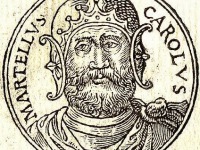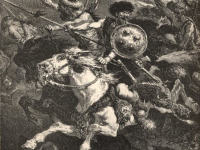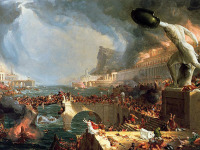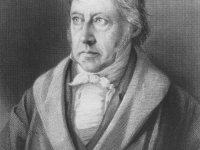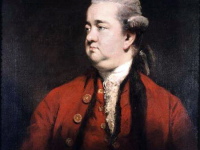Charles Martel and the Battle of Tours and Poitiers
On October 25, 732 AD, the Battle of Tours and Poitiers between the united Frankish and Burgundian forces under Austrasian Mayor of the Palace Charles Martel, against an army of the Umayyad Caliphate led by Abdul Rahman Al Ghafiqi, Governor-General of al-Andalus, ended the Islamic expansion era in Europe. It is argued among historians that Charles Martel’s victory was one of the most important events in European or even world history. The…
Read more

